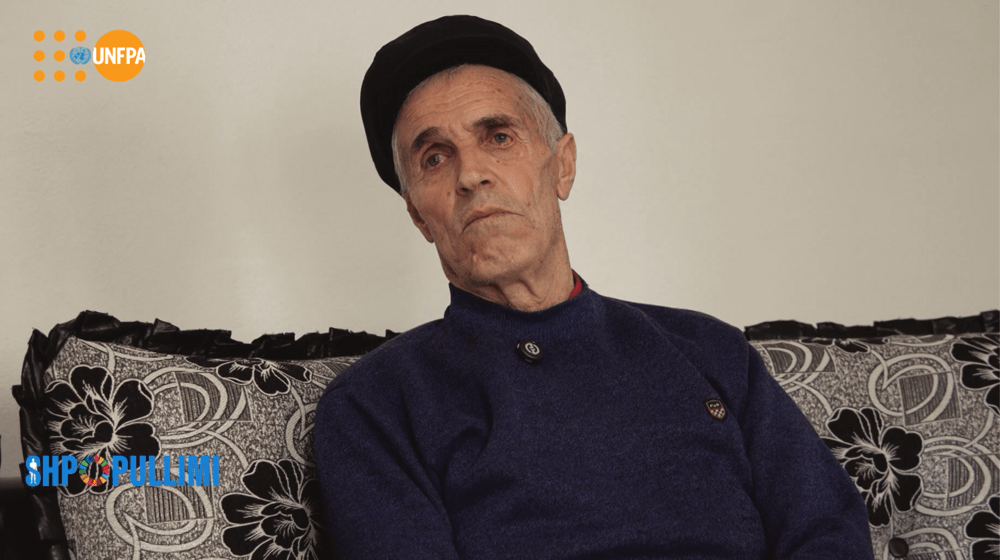In the last decade, Albania has experienced more a higher number of people leaving the country than in the first period after the fall of communism, bringing a serious confrontation with a new phenomenon of “depopulation.”
This topic is covered in the UNFPA Albania series “Depopulation,” which analyzes demographic changes in Albania and goes beyond census statistics, as it tries to highlight the factors that lead to emigration, as well as its multiple consequences.
Kukësi, one of the cities analyzed to show how a city can be emptied, is in the focus of the documentary broadcasted on Euronews Albania. The documentary provides an overview of the dramatic effects of emigration, while experts in the studio analyzed the main factors and emphasized the role of the state, the private sector and society itself to deter this phenomenon and provide sustainable solutions.
The documentary brought to light reality through characters of different ages, environments and contexts in Kukës, where one can find lonely old people, who spend their days looking at pictures of their children, grandchildren and great-grandchildren, or entrepreneurs who cannot find workers or customers to keep their business ongoing.
According to experts, mass emigration is strongly affecting every aspect of Albanian life, creating a deep social and economic impact. With high numbers of people leaving the country, especially educated youth and professionals, the country is facing a weakening of the pillars of society, while the lack of investment in education and employment has become a national concern.
Immigration and education
One of the main factors leading to emigration is the lack of quality and opportunities in education. While the documentary shows the vicious circle of an education system that cannot invest where there are no students, but, on the other hand, more families are losing opportunities because they have nowhere to educate their children, especially in abandoned areas. The Demographer Arjan Gjonça notes: “While educational policies are essential, the issue of emigration and the weakening of Albanian society cannot be addressed by this sector alone. Comprehensive development policies should be undertaken that include job creation, investment in industry and improvement of economic standards to stop mass immigration.”
But this affects the quality of education, which, as the economic expert, Dr. Enriko Ceko sytated: “It results in a functional literacy, where teachers and students know how to read and write, but they are not prepared to make conscious and complex decisions. With a low budget of 0.5% of GDP allocated to education, claims for real improvements seem remote.”
Vocational education as a solution for economic development
The head of the Hospitality-Tourism Association, Zak Topuzi, emphasizes “the need to return our focus to vocational professional education as a strategy to provide sustainable opportunities for employment and development in the country.” Proposing subsidies and scholarships for vocational schools, Topuzi emphasizes that “Professional education models in European countries have been successful in helping young people to create a stable and economically secure life. Vocational education should become a national emergency for Albania. Subsidies and scholarships to attend vocational schools can help young people find a profession that provides them with well-being.“, – says Topuzi, emphasizing the importance of supporting successful models.
What should/can be done?
In facing this complicated emigration challenge, according to experts, Albania should focus on several main directions:
1. Increase investments in general and vocational/professional education, to provide quality opportunities for young people and stop them from leaving.
2. Create opportunities for economic and industrial development. Diversification of economic sectors and creation of jobs supported by technological development.
3. Strengthen policies to ensure an active and sustainable society. Policies should focus on creating a society that supports young people and encourages them to stay and build a future in their country.
4. Improve the system of remittances and investment opportunities. To keep a share of sustainable income from the diaspora and help in economic development.
For UNFPA, analyzing the population and its dynamics should be done to address the fundamental reasons for emigration. Migration should be a choice not a vital need. This means that the reason people stay in their country is to ensure equality for all. And this relates to good governance, law enforcement, access to justice, protection of human rights and elimination of conflict and violence. This means that education, employment, decent wages, affordable health care and decent housing must be provided to all people, so that they are not tempted to leave to find these elsewhere. Migration policies must be coordinated with market needs, so that people’s skills are adapted to employment opportunities within the country.
Only through a comprehensive strategy that includes education, economic development and youth support can Albania begin to stem the tide of immigration and build a more stable and hopeful society for the future.


